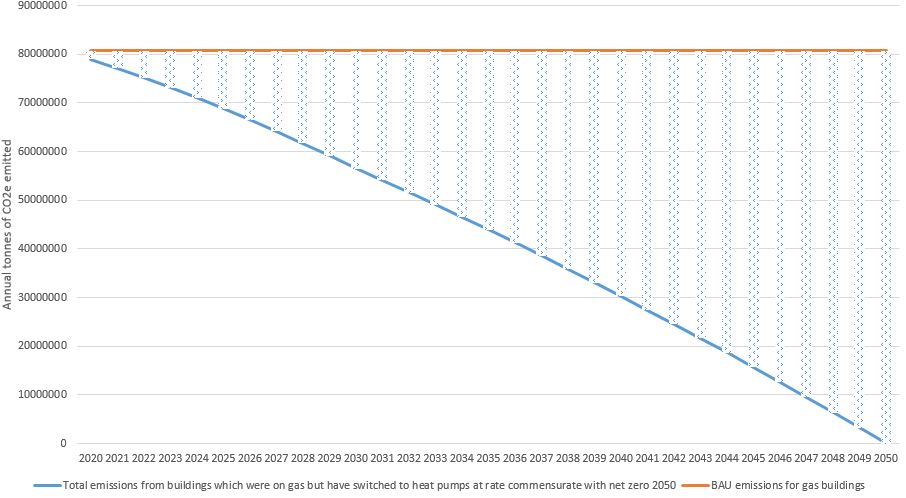
The absolutely criminal thing about heat decarbonisation/heat transition politics is the total ignorance by policy makers of the value it will bring to the UK. Ignoring the carbon reductions, it will save money and pay for itself through the reductions in gas imports (thread).
Currently GB is very reliant on fossil gas, more than almost all countries apart from the Netherlands. This is because we went big for gas in the 60s and 70s after finding North Sea gas. But that time is over. We now import over 50% of gas and that's expected to increase. 

Based on Ofgem market data, wholesale gas forward prices have been well above 45p/therm for early this year: ofgem.gov.uk/energy-data-an…
Taking a conservative cost of 45p/therm means a megawatt hour of gas is around £15.35 which equates to £15,354,693 per terawatt hour.
That means the UK, this year, will be spending over £7,953,731,191 on gas imports. Let's call it £8 billion. Every year gas imports increase, so does that number and it could be double by around 2040, depending on gas prices.
That £8 billion annual cost is not far off the @theCCCuk's suggested additional £10 billion per year for heat in the net zero scenario, a scenario which will reduce gas imports. The gas import costs will soon overtake the decarb costs. d423d1558e1d71897434.b-cdn.net/wp-content/upl…
Also worth noting that the @theCCCuk numbers behind the 6th carbon budget advice also show over the longer term once energy efficiency/heat decarb is done, bill would be lower for everyone. theccc.org.uk/publication/si… 

And there's something additional, productivity increases associated with inward investment i.e. various multiplier effects that occur from spending money internally rather than just importing gas. I'm not sure this has been quantified well/at all @HectorPollitt?
So overall, not decarbonising ASAP represents a huge cost, locking in gas imports which are expected to further increase and missing an real investment/productivity opportunity.
Hence some of my thoughts behind this blog: blogs.exeter.ac.uk/energy/2021/02…
Hence some of my thoughts behind this blog: blogs.exeter.ac.uk/energy/2021/02…
• • •
Missing some Tweet in this thread? You can try to
force a refresh





